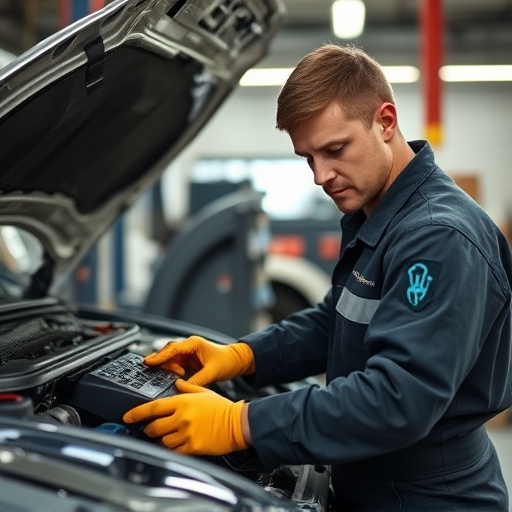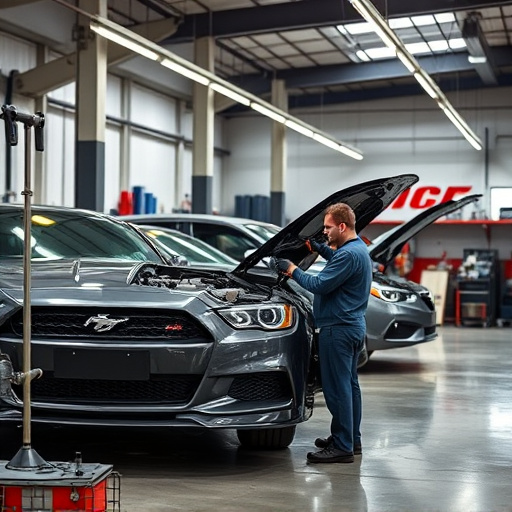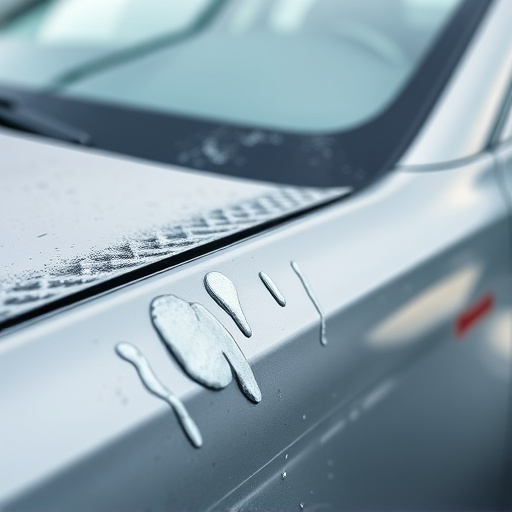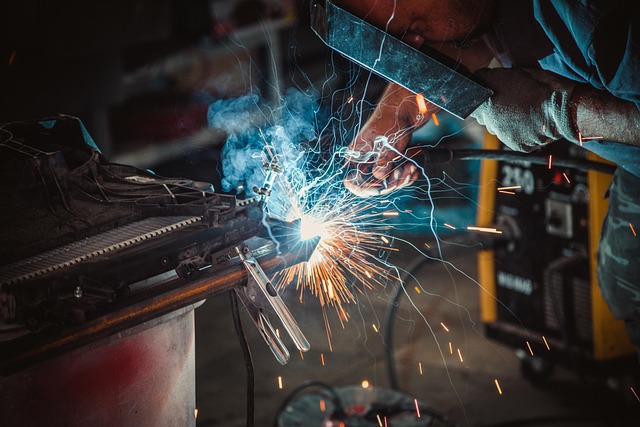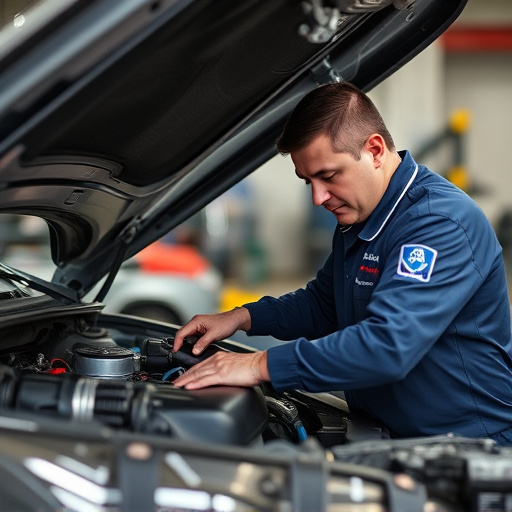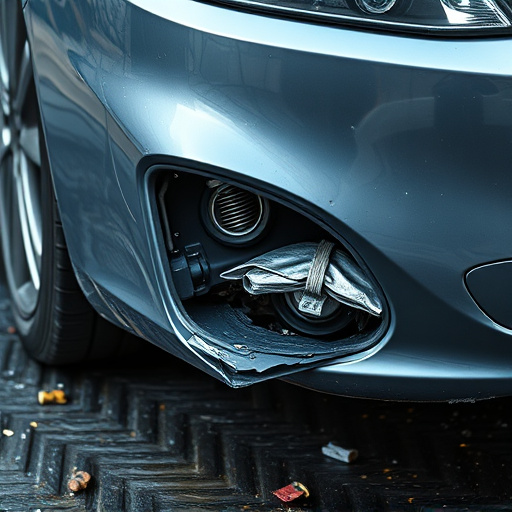EPA compliant body shop standards are critical for auto repair centers, ensuring safety and sustainability through proper management of hazardous materials like solvents used in dent removal and car paint repair. Compliance involves waste disposal, air quality control, and use of approved equipment, minimizing environmental impact while enhancing workplace safety and repair quality. Adhering to these standards boosts customer trust, fosters loyalty, and positions the shop as a responsible, eco-friendly business committed to both health and sustainability.
In today’s automotive landscape, maintaining EPA compliant body shop standards is paramount. This article explores why these standards matter and how they elevate auto repair quality and safety. From understanding key regulations to examining their impact on businesses and customers, we delve into the multifaceted benefits of adhering to EPA guidelines. By embracing compliance, body shops not only avoid legal pitfalls but also enhance their reputation, attract more clients, and contribute to a greener future for transportation.
- Understanding EPA Compliant Body Shop Standards
- The Impact of Compliance on Auto Repair Quality and Safety
- Benefits for Businesses and Customers Alike
Understanding EPA Compliant Body Shop Standards

The EPA compliant body shop standards are crucial guidelines that auto repair centers must adhere to for a safe and sustainable automotive servicing environment. These standards ensure that car repair shops manage hazardous materials, such as solvents used in dent removal and auto body repair, responsibly. By adhering to these regulations, shops minimize environmental impact and protect both their employees and customers from potential health risks associated with toxic chemicals.
Compliance involves proper waste disposal, air quality management, and the use of approved equipment and techniques for tasks like painting and sanding. It’s not just about meeting legal requirements; it’s a commitment to operating as an eco-conscious business that prioritizes both safety and sustainability in every repair process, from paint jobs to intricate dent removal procedures.
The Impact of Compliance on Auto Repair Quality and Safety

Adhering to EPA compliant body shop standards is paramount for ensuring auto repair quality and safety. These regulations govern the use of environmental friendly practices and materials, including proper disposal methods for hazardous substances commonly found in car paint repair and restoration processes. By implementing these standards, auto repair shops, whether specializing in classic car restoration or general car repair, can significantly minimize their ecological footprint.
Moreover, compliance with EPA guidelines enhances workplace safety for technicians and customers alike. It ensures that the facilities are equipped with adequate ventilation systems, protective gear, and safe waste management practices. This, in turn, reduces the risk of exposure to toxic chemicals, leading to healthier working environments and improved overall repair quality. For instance, proper adherence to standards during car paint repair can prevent contamination, ensuring a safer and more durable finish on vehicles.
Benefits for Businesses and Customers Alike

Adhering to EPA compliant body shop standards brings a multitude of benefits for both businesses and customers. For auto repair shops, compliance ensures a safer working environment by minimizing exposure to harmful chemicals used in vehicle paint repair and car body restoration processes. This, in turn, leads to improved employee health and reduced instances of work-related illnesses.
Moreover, EPA compliance enhances customer trust and satisfaction. Knowing that their vehicle is being restored using eco-friendly practices and top-tier materials, customers feel assured about the quality of the automotive restoration services they receive. This not only promotes customer loyalty but also positions the business as a responsible corporate citizen committed to sustainable practices.
EPA compliant body shop standards are not just regulatory requirements; they are a cornerstone of modern auto repair, ensuring quality, safety, and environmental protection. By adhering to these standards, body shops enhance customer satisfaction and business profitability. The benefits are clear: improved vehicle restoration, reduced environmental impact, and a competitive edge in the market. For consumers, it means peace of mind knowing their vehicles are repaired to the highest possible standard while also preserving our planet’s resources.

